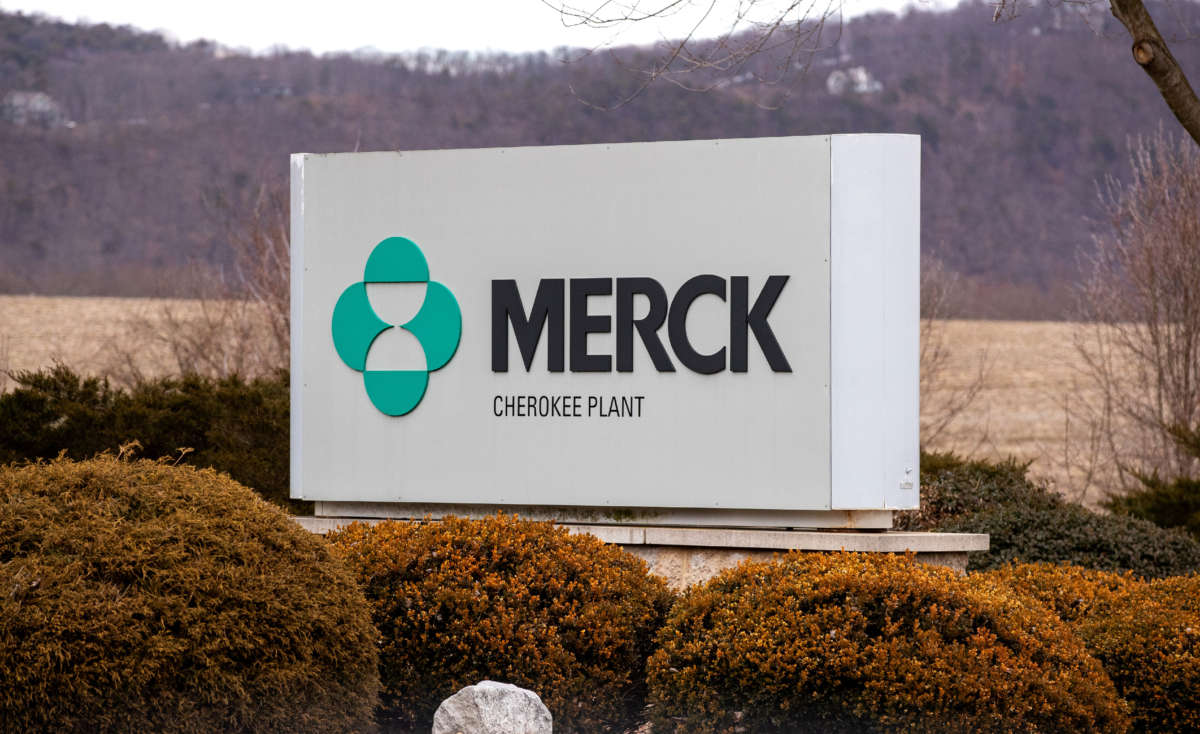Drug manufacturer Merck announced on Friday that it will soon seek authorization from the Food and Drug Administration (FDA) for approval of the first COVID-19 antiviral drug that can be administered as a pill.
The drug — known as molnupiravir — works by stopping the virus from being able to replicate in a person’s body. A patient who has received an early coronavirus diagnosis would take four capsules twice a day for five days as treatment.
When given to higher-risk patients early on in their infection during clinical trials, the drug has cut coronavirus death and hospitalization rates in half within just five days of starting the daily pill regimen.
The results of the clinical trial are immensely promising to those monitoring it — so much so that an independent group of medical experts who were supervising the trial stopped it early because its efficacy rate was so high.
Other treatment options remain much more effective at preventing infection or treating those who are diagnosed with coronavirus. For example, monoclonal antibody treatments are shown to prevent the need for hospitalization or the chance of death by around 70 percent. Vaccinations against COVID-19 have had even higher rates of success in preventing contraction of and hospitalization for the virus.
But monoclonal antibody treatments are expensive, and access to vaccines is limited in many parts of the globe.
“I think it will translate into many thousands of lives being saved worldwide, where there’s less access to monoclonal antibodies, and in this country, too,” said Robert Shafer, an infectious disease specialist at Stanford University speaking to The New York Times.
“This could turn out to be one of the most important advances to counter Covid,” tweeted Eric Topol, an American cardiologist, scientist and author.
Though the availability of a pill to treat COVID may result in vaccine skeptics thinking they don’t need to get vaccinated to protect themselves from contracting the virus, experts say that preventive measures remain the best way to manage the pandemic, rather than treatment methods.
According to a recent Economist/YouGov poll, 17 percent of Americans still say they will never get vaccinated, while around 11 percent say they’re still unsure.
“We love having more treatments available, but prevention is the first goal,” said William Schaffner, an infectious disease expert at Vanderbilt University who spoke to the Associated Press about the Merck medication. “Vaccination continues to be the foundation of how we can get ahead of COVID.”
3 Days Left: All gifts to Truthout now matched!
From now until the end of the year, all donations to Truthout will be matched dollar for dollar up to $38,000! Thanks to a generous supporter, your one-time gift today will be matched immediately. As well, your monthly donation will be matched for the whole first year, doubling your impact.
We have just 3 days left to raise $38,000 and receive the full match.
This matching gift comes at a critical time. As Trump attempts to silence dissenting voices and oppositional nonprofits, reader support is our best defense against the right-wing agenda.
Help Truthout confront Trump’s fascism in 2026, and have your donation matched now!
